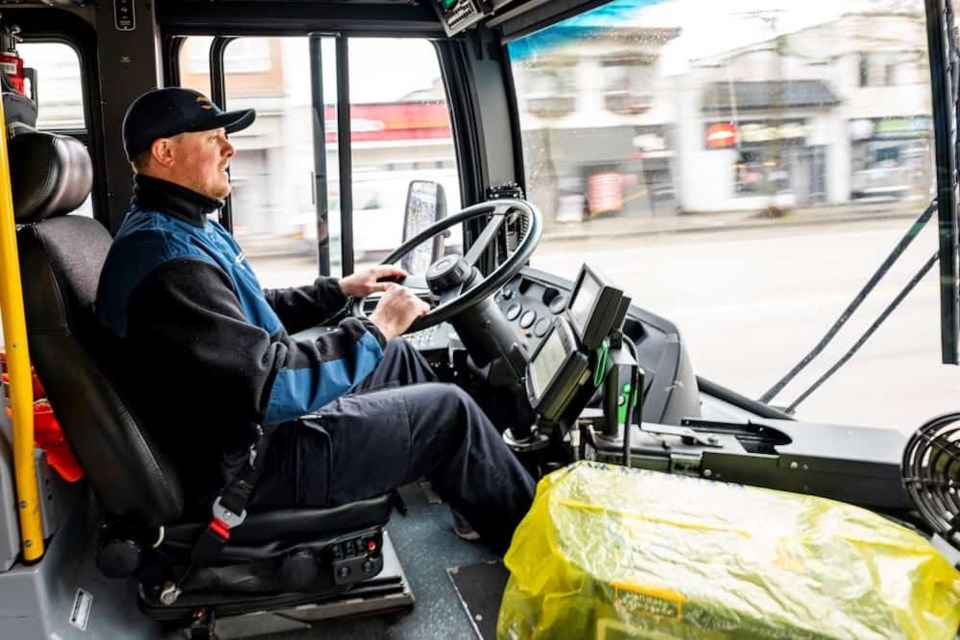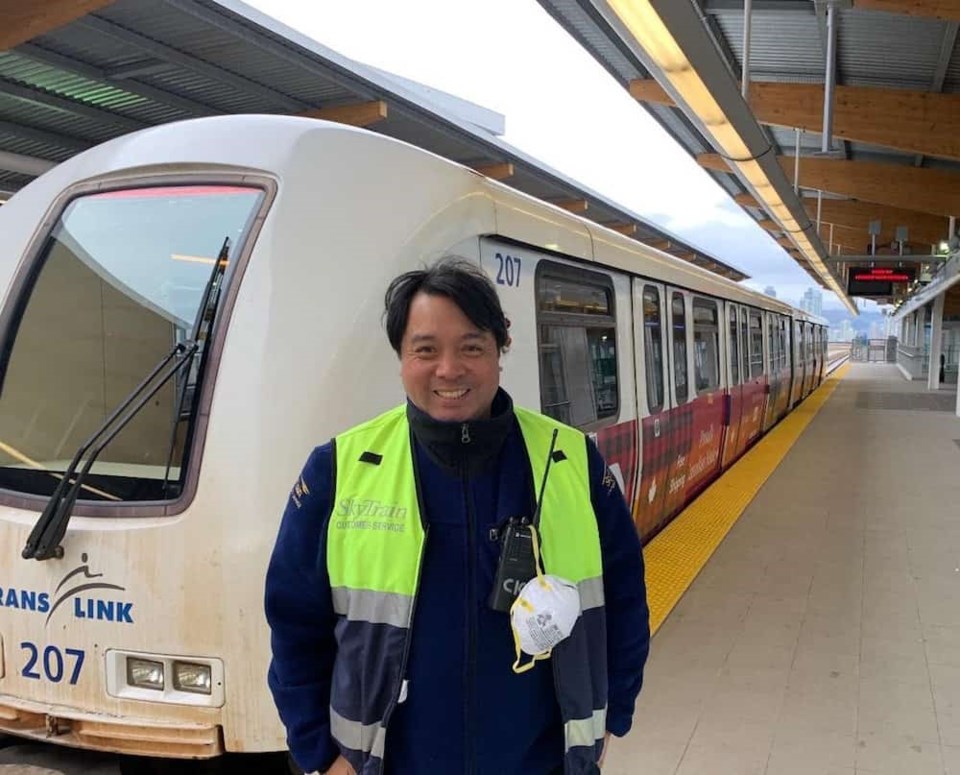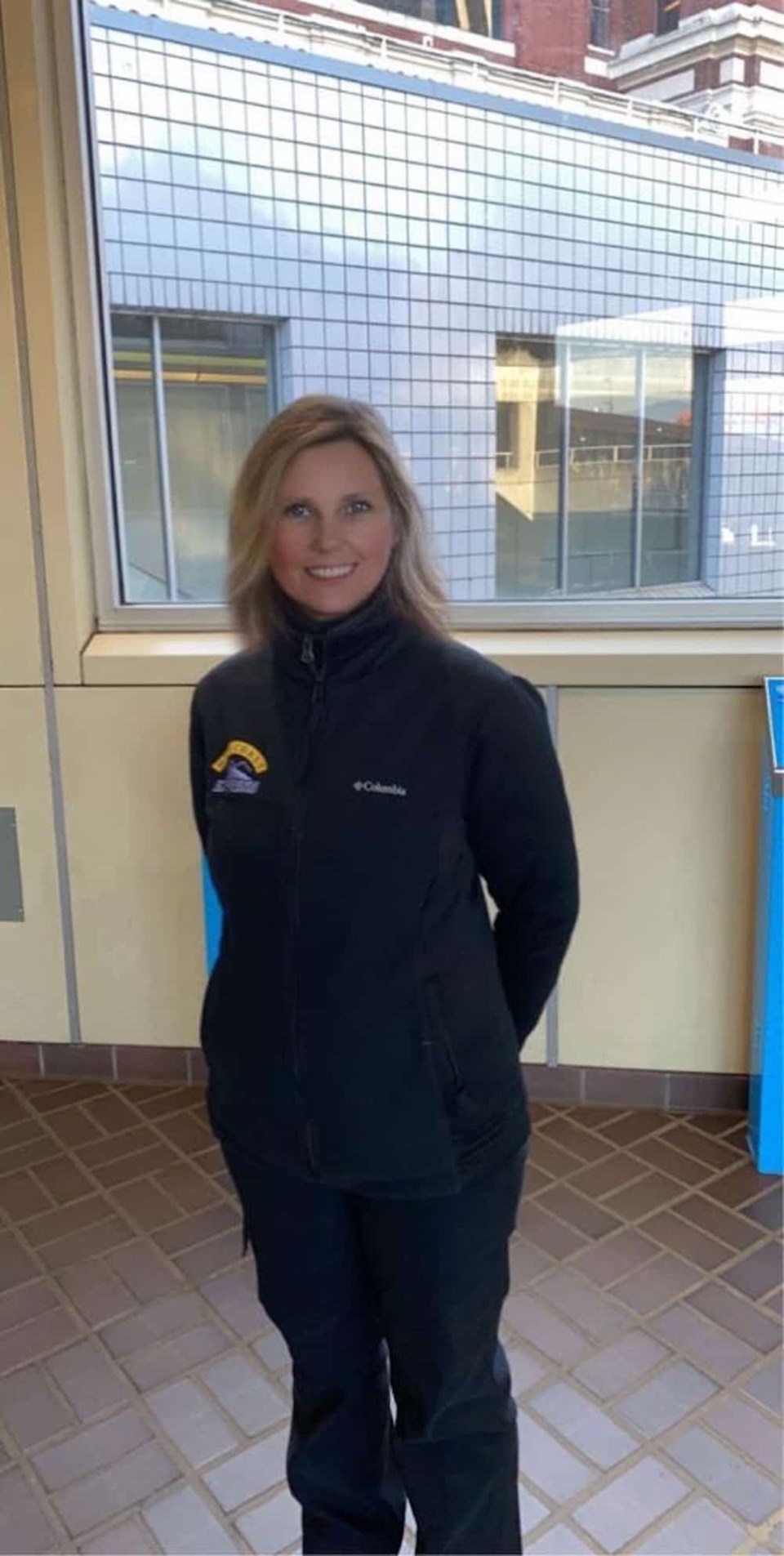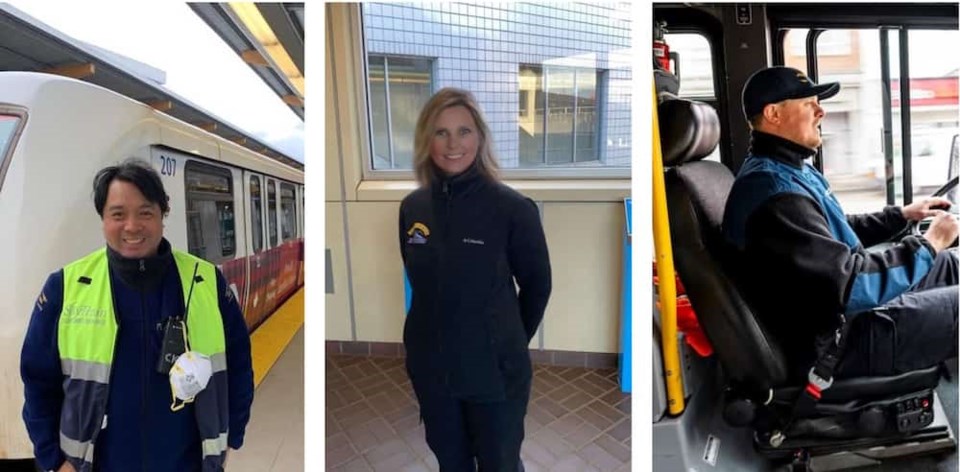In the wake of COVID-19, many Metro Vancouverites spend the majority of their day at home. However, a number of front line workers continue to interact with the public every day, including health care workers, grocery store clerks, and, of course, transit staff.
While TransLink has implemented a number of changes to protect its employees as well as the public at large, transit operators and attendants put themselves at risk to provide vital transportation to people across the Lower Mainland.
Hailing from North Delta, Bryan Stebbings has worked as a transit operator for TransLink for nearly four years.
"I grew up in North Delta, and now live in Kitsilano with my wife Kristen and two children Madelyn and Henrik. I enjoy sports especially hockey and baseball, socializing with friends and family, and traveling as much as we can," writes Stebbings.
Of course, COVID-19 has changed Stebbings's life, both on and off shift. With this in mind, he tells Vancouver Is Awesome that people look happy to see operators on the road during this crisis. He notes that his day begins around 6 a.m. at the bus depot, where he "pre-trips" the bus to ensure it is thoroughly sanitized down.
"I drive the #9 bus in the morning," he explains. "And things are different now. I am constantly aware of who is on the bus and where everyone is, making sure that I'm not touching my eyes and mouth, while continuing to operate the bus as safely as I can."
After his first shift, Stebbings heads home around 10 a.m. Once he's home, he remarks that he takes off his uniform at the door and washes his hands before contacting his kids or wife. After he has finished cleaning off, the family eats lunch together. Next, he heads back to work at 11:45 a.m. to drive the #7 bus, and goes through the same cleaning procedure.
"I finish the day at 4:35 p.m. and walk home, which gives me time to decompress. Once I’m home, I take everything off at the door and head into the shower right away. I’m really careful now. There are so many different types of people who come on and off the bus during a day with some taking this pandemic very seriously and some not at all and I need to be extra cautious for my family."
 Photo: Josh Neufeld
Photo: Josh Neufeld Despite the hard times, Stebbings notes that he has important job, and that customers inspire him to serve his community.
"There is purpose behind my work. And that makes me want to get up, go out there, serve my community, and get these people to the places they need to be to help us all out during a very uncertain time. A simple "thank you" has been amazing to hear going through such a difficult time for everyone," he says.
With this in mind, he notes that, "negative experiences are more common then they need to be."
Stebbings reports that some people will cough without covering their mouths, while others may not want to practice safe physical distance because their personal feelings toward Covid-19 are very relaxed. He adds that people should think twice before leaving their homes, and only ride the bus if they are an essential worker or have essential business.
"This is not the time for leisure transit rides, and the ones on the bus should keep physical distancing a top priority," he underscores. "We should all be watching out for one another right now and the best way to do that is to practice good hygiene and maintain our physical distances,"A Skytrain Attendant for a whopping 19 years, Vancouverite Ryan Medoza says he's been happily married for 24 years with five kids - two girls, three boys and one dog.
"I enjoy spending time with my family, hiking, working out, watching basketball, cooking, and eating," he says.
At the start of his day, Mendoza arrives at his assigned/designated station, checks in with his supervisor and does a thorough check of his station.
"I do my best to wipe down items that our passengers are in contact with: Compass ticket vending machines, fare gates, door handles, platform benches, elevator buttons and handrails. I check our first aid kits and emergency cabinets to make sure they are fully stocked for the day," he states. " Anything I can do to help our passengers move through my station quickly and efficiently."
 Photo: TransLink
Photo: TransLinkWhile he misses his daily interactions with regular commuters, Mendoza says that, "I’m proud to work for a company where we can play our part by making it so health care workers, grocery store employees, and people working at warehouses can still get to their jobs and keep us all safe."
Mendoza adds that customers have gone out of their way to thank him for going to work during the COVID-19 pandemic.
"A lot more smiles and waves which go a long way while being on 10-hour shift. I haven’t had any negative experiences other than not being able to work alongside some of my coworkers. I value the comradery at work but unfortunately because our duties have been modified, the amount of time we can spend time together is now limited to respect physical distancing," he writes.
Fiona Trumper has been a West Coast Station Attendant for six years and lives in Maple Ridge with her husband.
"I’m a big hiker, love hot yoga, and walking my dog," she says.
In regard to how COVID-19 has affected her job, she says: "I still have my morning shift and my husband is also a frontline employee – he is a driver. And that has been nice because I have someone to talk to about my experience who gets it and can relate. The real difference in my day-to-day has been maintaining a physical distance with our passengers. We are used to talking to our passengers, asking them about their day – we still do that, but just not as much."
 Photo: West Coast Express
Photo: West Coast Express Trumper adds that passengers have been really supportive and appreciative, which has been encouraging.
"On the West Coast Express, we are a real community, we have a relationship with almost all of our passengers, and a lot of them are frontline workers as well – lots of nurses that rely on us to get to work the morning."
Trumper stresses that all riders should maintain their physical distance. She notes that many West Coast Express passengers have their own space on the train, and their own self-assigned seat that they like to sit in. However, they’re having to be more mindful about that and some are giving up their regular spots.
"I know that that I speak for all the station attendants and the conductors when I say we are missing all our passengers. That’s the hardest part. It’s a tough time, and we hope they’re all staying safe and healthy."
Vancouverties have been stepping outside each night to cheer for health care workers and first responders from their balconies, backyards, and doorsteps. Now, even TransLink joins in on the 7 o'clock kudos.
In order to celebrate everyone on the front lines, TransLink has played an announcement on its Expo, Millennium and Canada Line trains at 7 p.m. sharp. The announcement played for the first time on March 27.



